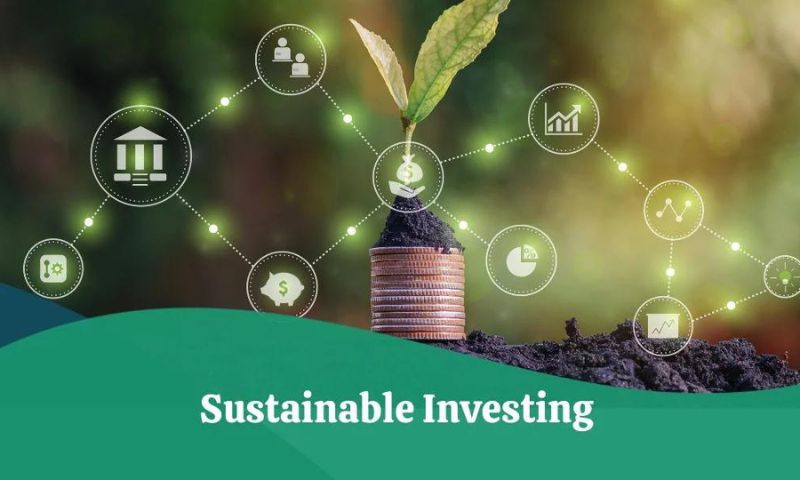Sustainable Investing Regulations: It’s the wild west out there in the finance world, with a green twist. As the planet faces unseen environmental challenges, the rules of the money game are changing—fast. I’m here to be your guide, showing you how the laws are shaping the future of investment. Money talks, as they say, and now it’s speaking up for the planet. Let’s dig into how new regulations are redefining what it means to invest, ensuring your green goes towards growing a future that’s not just wealthy, but also healthy.
Understanding the EU Taxonomy for Sustainable Activities
Defining Sustainable Economic Activities
Money talks, they say. So let’s make sure it ‘goes green’. That’s what the EU’s doing with its rules for what counts as green money moves. It’s simple: if you’re a business, your work should help our planet. The EU made a list to show what kinds of work are good for nature.
Imagine a big rule book on how to keep Earth happy. That’s the EU Taxonomy. It checks your company’s work. It asks, “Are you making Earth smile or frown?” To get a smile, your work must be clear about not harming nature. You must also respect and protect human rights. And, better yet, if your work can heal our planet, that’s a big win!
The Criteria for Climate Mitigation and Adaptation
Now, let’s dive deeper. Two big words come up a lot: mitigation and adaptation. What do they mean? Mitigation is like being a superhero for the Earth. You’re fighting climate change by cutting down things that harm the air, like gas from cars and factories.
Adaptation is more like being a smart planner. You get ready for climate change by making homes and roads strong against wild weather. It’s like knowing it will rain and having a solid umbrella.
The EU decides if your money moves pass the green test. They check if you’re doing things like making clean energy or building homes that stay cool without needing lots of power. This is important. Why? Because when you know your money helps the Earth, you feel good. And, it shows others how to put their cash where it counts for nature.
So when businesses and folks that play with big money, like banks and funds, want to do right by the planet, they look at this EU Taxonomy. It’s like a green light for clean investments. And, it keeps them honest, making sure they’re not just talking a big green game without making real moves for our planet.
They also have to share what they’re doing with everyone. That’s part of playing fair and being open. This means you can check if they’re really friends with Earth or just pretending. It’s all about trust and being able to count on their word.
In the end, whether you’re saving up for a new bike or putting money into a big company, you get to choose where your cash goes. Thanks to the EU’s work, you can be sure your money is fighting the good fight against climate change. This is a game-changer, friends! It means each euro is a seed for a greener tomorrow. Isn’t that something worth investing in?

The Impact and Importance of ESG Disclosures
Advancing Transparency in Environmental Performance
True impact comes from clear truth. In finance, Environmental, Social, Governance (ESG) disclosures shine a light on company behaviors. Think of a school report card, but for a firm’s green health. The better the scores, the cleaner the company. This has huge sway in deciding where to invest.
Good ESG scores win trust. They show a company’s impact on our planet. High scores can mean less risk, drawing in more investors. We can see who walks the walk, not just talks the talk. Simply put, honest ESG reports lead to smart, green choices.
The Role of Mandatory ESG Reporting in Investor Decision-Making
Now, let’s chat about rules to report ESG factors. They’re not just nice to have, they’re a must. These rules help investors spot risks tied to climate and society. They can find options that match their eco and social values. These data points sway major cash flows. They guide investors to back firms that care for our world just as we do.
Mandatory ESG reporting means no hiding the truth. It holds firms to their green promises. Strong reports can set firms apart, raising their appeal. Rule-backed reports pack a real punch, changing where money grows. It nudges firms to do better, for us, and for our world.
In the end, ESG is more than just a buzzword. It’s a lens to view the future of finance, through clear, green glasses.
Exploring the Landscape of Green Finance Instruments
Navigating Green Bonds and their Regulatory Environment
Green bonds have changed the way we think about investing. They raise money for projects that help our earth. These projects can be things like clean energy or public transport. What makes green bonds special is that they are designed for good causes. This has rules though. To make sure money is used right, we have a legal framework. This framework checks if projects truly help the environment.
For example, a company can say they will use money to build wind farms. This is checked by others to make sure it’s true. Invested money must go to real green projects. As an expert, I guide companies to follow these rules. This way, investors trust that their money is changing things for the better.
Assessing the Growth of Sustainable Investment Funds
Next, let’s look at funds that only invest in green tasks. These funds use ESG investment criteria. “ESG” stands for Environmental, Social, and Governance. It’s about investing in ways that care for our world and people. These funds have grown fast! More people want their money to work for good. But it must be checked too.
Funds must say how they act on things like carbon footprints and clean power. They share their actions by revealing their practices. This creates trust. It helps investors choose funds that match their values. This is important for a greener future. These funds also follow global standards and rules. These rules make sure that money goes to the right sustainable jobs.
With great power comes great duty. Fund managers have to create fair value. They must also not hurt our planet. ESG guidelines help them. They look at things like how a company treats people and our earth. They must tell the truth about where the money goes. This way, we all move forward to a better world.
Remember, the road to green finance is not just about money. It’s about making wise choices. With strong rules and true reports, we shape a world that cares for tomorrow. We ensure that every dollar invested is a step towards a greener, kinder, and more just planet. As investors or fund managers, we hold the key to this greener future. And I stand by to help guide this journey, with knowledge, with care, and with hope for what we can build together.

Integrating ESG Factors into Investment Strategies
Approaches to ESG Rating and Risk Assessment in Finance
When we talk about ESG investment criteria, think ratings. These ratings score how firms handle environmental, social, and governance issues. Like credit scores for responsibility. To rate these areas, agencies dig into a company’s actions and effects. They check for green practices, ethical dealings, and solid leadership.
Big question: are these ESG ratings precise? To answer that, look at the firm’s details. Their reports, history, and the rating agency’s methods. Accurate ESG ratings rely on rich data and clear standards.
Now, why this fuss over ESG? Simply put, ESG factors can swing a company’s future. They can cause risks or create opportunities. For instance, climate change might hurt business operations, or new laws might force changes that cost money. Knowing this helps investors choose wisely.
Let’s say an investor wants only clean energy assets. They will sift through ESG ratings to find the best matches. Investors need these ratings to be spot on; otherwise, they could end up backing a not-so-green project. And nobody wants that, right?
The Intersection of Fiduciary Duty and Socially Responsible Investing Rules
Did you know that when someone handles your money, they’ve got a duty to you? That’s fiduciary responsibility, a must-do for finance folks. It means they promise to pick investments with your best interest in mind.
Now, toss in socially responsible investing rules. These rules shape how folks invest with morals in mind. So, when advisors look for investments, they also check how a business stacks up ethically.
But here’s where it gets tricky. Some wonder if picking investments for good causes might conflict with getting the best returns. The cool part is, studies have shown that ESG-focused firms often do better in the long run. They tend to stay away from businesses or practices that could lead to big problems or even fines.
Take green finance guidelines. These help investors find opportunities that favor the Earth. We’re talking wind farms instead of coal plants. By following these, advisors can fulfill their fiduciary duty and promote social good.
What’s more, many now believe that tackling issues like climate crisis is part of fiduciary duty. They see it as a risk that has to be considered. This has tied fiduciary responsibilities to ESG in a way not seen before.
To make this dance work, people use tools for impact of ESG disclosures. These tools shed light on the good and bad in a business’s behavior. They help decide if an investment aligns with your ethics and cash goals.
Let’s recap quickly. ESG info guides us. It tells our financial experts what’s hot and what’s not in the sustainability scene. Pair that with their need to watch our backs, and you get a teammate who’s all about making money with meaning.
Remember, ESG isn’t just trendy; it’s the savvy way to watch for bumps on your investment road. And it aligns doing right by the planet with doing right by your wallet. Sounds like a win-win, don’t you think?
We’ve looked at how the EU breaks down eco-friendly work and how this helps our world. We know the rules for climate care and growth. We learned that being open about the environment is key, and it guides those who invest. Green bonds and funding for earth-friendly choices are on the rise, a sign of good change. We delved into adding ESG (environment, social, governance) to the ways we invest, and how this matches with our duty to others and our planet. In the end, we see that smart money choices today shape a greener tomorrow. Let’s keep pushing for investments that value our planet as much as profits. It’s not just smart; it’s right.
Q&A :
What are the main sustainable investing regulations to be aware of?
Sustainable investing regulations encompass a variety of guidelines and laws aimed at integrating environmental, social, and governance (ESG) considerations into investment decisions. Key regulations include the EU Sustainable Finance Disclosure Regulation (SFDR), which mandates fund managers to disclose how they consider ESG factors in their investments, and the US Department of Labor’s rules on ESG investments in retirement plans. Additionally, regions may have specific sustainable finance action plans or taxonomies classifying which investments are considered environmentally sustainable.
How do sustainable investing regulations impact investors?
Sustainable investing regulations primarily affect institutional investors, asset managers, and financial advisors by requiring them to include ESG criteria in their investment analysis and decision-making processes. For individual investors, these regulations increase transparency, allowing them to make more informed choices regarding ESG investments. They also help in the assessment of the long-term sustainability and ethical impact of their investments, influencing the overall allocation of capital towards more sustainable enterprises.
Can sustainable investing regulations affect financial performance?
While the primary intention of sustainable investing regulations is to promote non-financial considerations in investment decisions, they can have an indirect impact on financial performance. Regulations encourage companies to improve their ESG practices, which can lead to better risk management and potentially enhance long-term returns. Furthermore, as consumer and investor preferences shift towards sustainability, companies that are early adopters of ESG standards may benefit from a competitive advantage and improved investor perception.
What is the role of global agreements in shaping sustainable investing regulations?
Global agreements, such as the Paris Agreement and the United Nations Sustainable Development Goals (SDGs), play a crucial role in shaping sustainable investing regulations by setting international benchmarks for sustainability. These agreements inform national policies and regulatory frameworks, creating a more cohesive approach to integrating sustainability into finance. As a result, investors are increasingly expected to consider how their investment practices align with wider sustainability targets set by these global agreements.
How do sustainable investing regulations differ across countries?
Sustainable investing regulations differ widely across countries due to variations in legal systems, market maturity, and policy priorities. For instance, European countries, led by the European Union, have more established and comprehensive sustainable finance regulations. In contrast, other regions may focus more on voluntary guidelines or be in earlier stages of developing formal regulatory frameworks. As a result, investors must navigate a complex landscape of local and regional regulations when constructing global sustainable investment portfolios.




